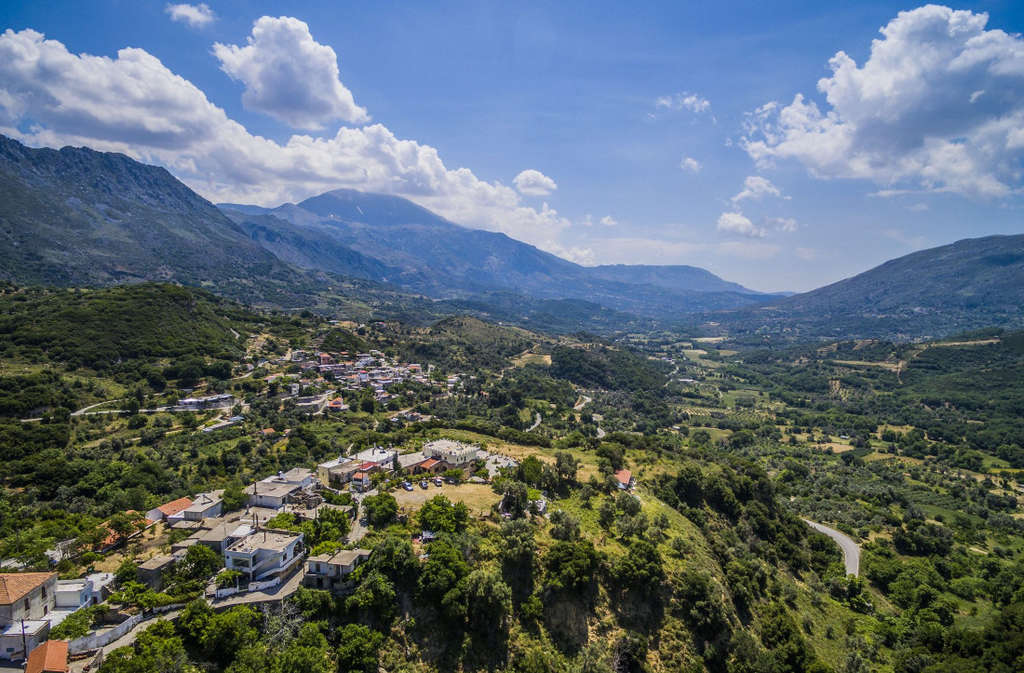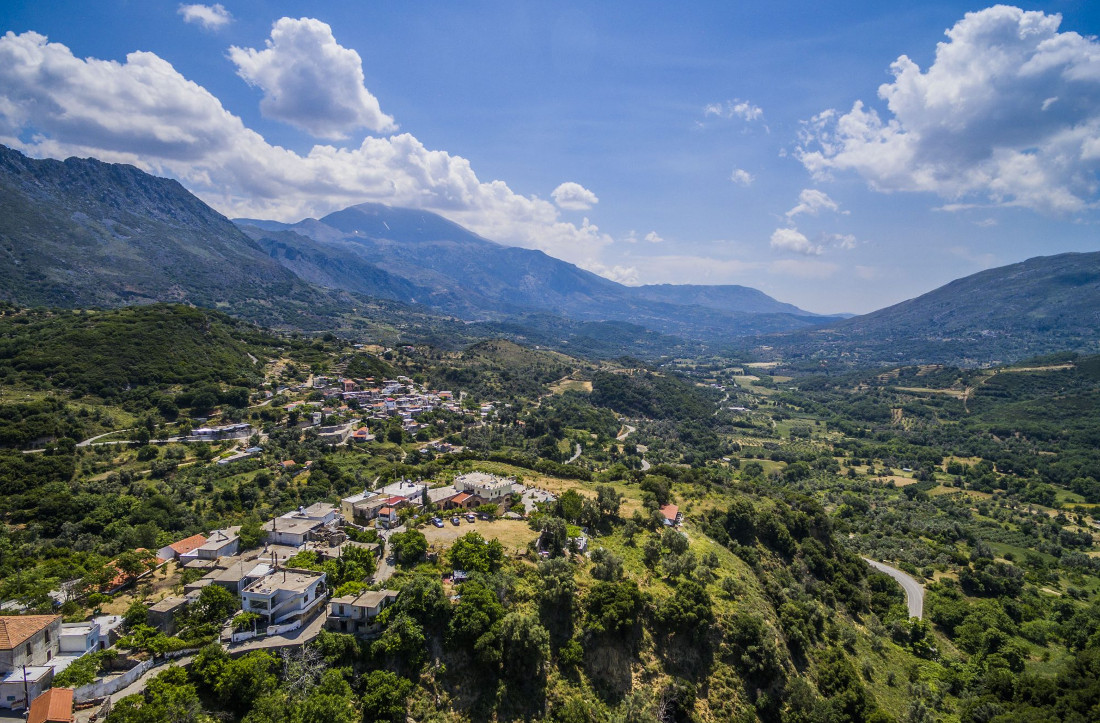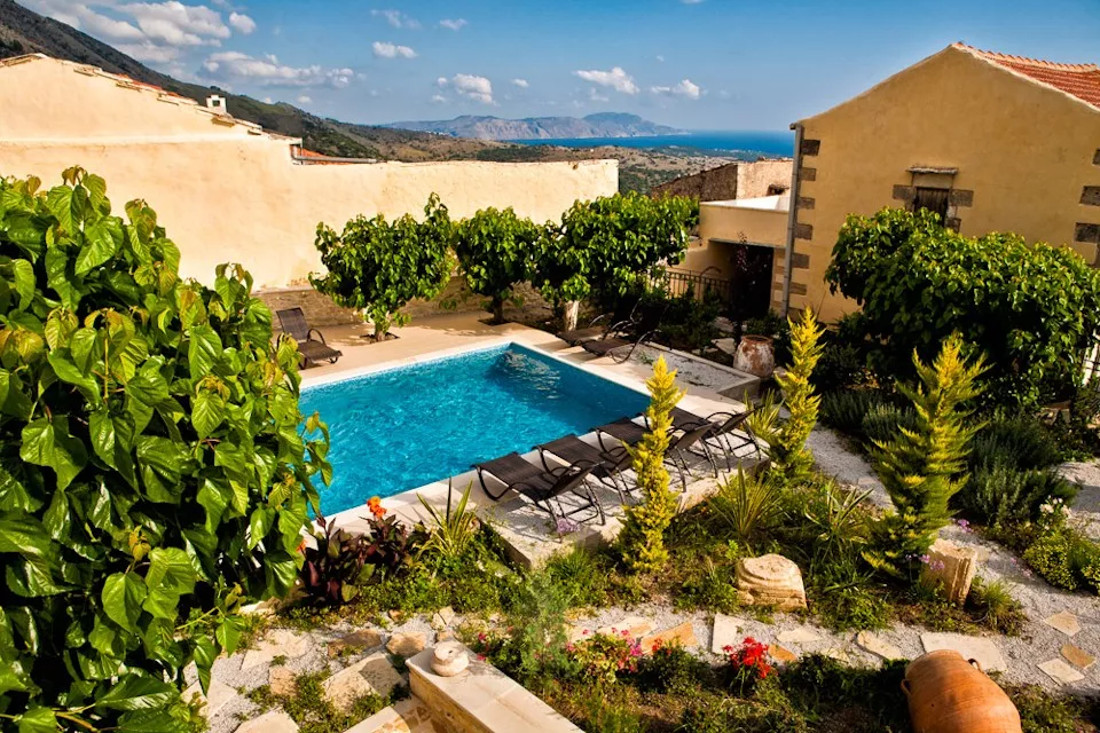In Crete's Lappa, a Good Friday Summit Focuses on Cultural Values

On Thursday, April 5th Travel Massive Crete and the Cultural Association of Argyroupoli, in collaboration with the Parish of Argyroupoli, the Cretan Gastronomy Center, and the Municipality of Rethymno will host a unique summit "Traditions: Powerful Tools for Rural Tourism Development."
Designed to encourage cultural tourism development for the rural areas of Crete, the event is scheduled to coincide with the Orthodox Good Friday procession in the historic village. The initiative serves to better frame an overall move in Greece for developing alternative tourism value, while at the same time providing a template for growing the local Crete economy.
The news comes at a timely juncture when cultural tourism is recognized worldwide as the fastest growing market segment. Greece seems to be lagging behind the trend: according to a recent study by the Athens-based Center of Planning and Economic Research (KEPE), the number of visitors to Greek cultural sites and museums at key tourism attractions is way below the figures for other countries. However, outside the main paths, the situation for rural tourist destinations and routes lags even farther behind competing destinations.
Greece has been one of the world's most popular tourist destinations since human beings first began traveling for pleasure. Each succeeding year, more and more people visit Athens and other mainland wonders, not to mention the thousands of Greek island paradises. A billion visitations later, some experts think that the Greek tourism market is saturated. Nothing could be further from the truth. Greece has a wealth of experiences to offer, experiences that are there for discovery or rediscovery, and nowhere is this more prevalent than on the island of Crete. This brings us to the timely meetup of some key stakeholders on Crete. A Travel Massive Crete chapter mini-summit will take place at the site of ancient Lappa (Argyroupoli) - the perfect opportunity for revising centuries of heritage, and for examining the best ways to grow this type of travel opportunity. To get a window seat into what this trend means for villages like Argyroupoli, I asked one of the organizers of these events, Rebecca Skevaki, who's the Founder and Director of Crete Urban Adventures, why promoting rural cultural tourism on Crete is essential. Here is what she said:
"The importance of such developments for the region and individual communities/attractions applies to both the destination and the traveler. First, a local rural area will see the boosting of travel-oriented businesses and businesses whose focus is not directly related to tourism (eg. agriculture-traditional crafts). Secondly, the benefits for travelers, especially those arriving from faster-paced urban lifestyles, will be able to appreciate a healthier way of living better and they will discover authentic local experiences."
For the tiny village of Argyroupoli, which was the site of ancient Lappa, stakeholders like the local Cultural Association of Argyroupoli, the Cretan Gastronomy Center, alongside hospitality businesses like Arcus Suites provide the momentum for optimized and sustainable tourism growth. Furthermore, the support of the larger regional unit, the Municipality of Rethymno is the kind of engagement every region and community on Crete should emulate. As a way of illustrating what I mean here, I talked briefly with a stakeholder from Thronos, which is another magical rural destination that would benefit from a more cohesive effort - Maria Papoutsaki, the Operations Director at Aravanes Traditional Tavern & Rooms, overlooking the picturesque Amari Valley.
The site of ancient Sivritos, this tiny village appropriately named for its position overlooking the Amari valley, does remind one of mighty Zeus commanding his childhood playground. Aravanes being a commercial enterprise tied inextricably with the site and the local traditions, I asked Maria about elements of culture that are most attractive to visitors. Not surprisingly, she related a tradition that permeates Eastern Europe: celebrating the dearly departed on a special day, annually. As it turned out, the anniversary of Maria's mother passing came up the other day. So, she appropriately related the story of making "koliva" - which is boiled wheat mixed with nuts, dried fruit, and sugar - is said to be food that is good for the souls of the dead. I asked Maria about how villages like Thronos can play a role in preserving and sharing Cretan culture. Here is what she had to say:
"I think it is vital for the people who grew up and who still live in these rural areas to take the initiative in promoting, sharing, and preserving these traditions in their purest form. It is also imperative that vested parties collaborate in creating a moral path for promoting small village customs. In this way, we can continue to provide a genuine local experience, while ensuring our local heritage is preserved."
This "koliva" tradition and many similar traditions on Crete create the unique tapestry of alternative touristic value outside beach and resort travel. This is where ongoing concerns like the Cretan Gastronomy Center in Argyroupoli present a "best case" for culinary promotion as one facet of culture. A paper (PDF) from 2015 entitled; "Gastronomy as a Form Of Cultural Tourism," expresses perfectly the catalytic nature of the trend we are seeing develop. According to the experts from the Technological Education Institute of Piraeus and the Ministry of Tourism, today's experienced travelers are seeking quality and a more in-depth knowledge of the culture and lifestyle of the inhabitants of a place. Furthermore, their work suggests that gastronomy and the ritual nature of food play a vital role in attracting tourists to any cultural destination. In summary, the study indicates the need to market individual regions as unique gastronomic destinations. This notion that led me to consult a local expert in food traditions in another part of the Rethymno Prefecture.
The unique nature of "place" has a pivotal role for Greece and Crete. As a "for instance" - a custom that began several years ago when Argyroupoli did not have electricity and public lighting accentuates an already rich cultural hub. The locals honor the death of Jesus and enlighten the path followed by the shepherd's litany with "candles" (torches of reeds & starvils) which they light and carry on their shoulders. This new custom, interlaced over the top of this village's ages-old traditions, teaches us a valuable lesson if we pay attention. Lappa (Argyroupoli) you see, is a place of legend and lore like so many Cretan villages. But even myths from antiquity may die sooner or later unless preserved organically and commercially. Adaptation is vital in this regard. While steadfast preservation of cultural events should be carried out, it's necessary for stakeholders to exhibit some flexibility if younger generations are to adapt tradition.
This brings me to a last point of sustainability, to which the Crete Travel Massive and these other organizers have invited noted researcher Dr. Stavros Hatzimarinakis of the University of Patras to "Traditions: Powerful Tools for Rural Tourism Development." to present the discussion, "Linking Tourism Consumption to Domestic Products." Dr. Hatzimarinakis is a leading expert in best practices for sustainable tourism as it applies to specific touristic ecosystems. For instance, his work asks the all-important question; "What is the correct balance of visitors, local production, and the consumption at the end of the touristic product chain?" Also speaking on the sustainability aspect at this Argyroupoli are Anastasia Chatziioannou, Project Manager at EyeWide Digital Marketing Agency; Anula Galewska, Business Manager at Urban Adventures and a Co-Founder of Travindy; and Mihaela Lica Butler, award-winning travel journalist and a reporter for HospitalityNet.
Traditions and culture as a touristic product, sustainability and viability in a sensitive natural ecosystem, and flexibility to meet the demands of the new age of travel, these and other issues will be covered in the upcoming conference. But for me, this is only a good start toward optimizing the positive potential of the island of Crete, where my family and I now live permanently. Our reasoning for being a part of this mini-summit and other initiatives is not merely to help create and market an economic win for businesses on Crete. For short-term economic wins cannot help Crete or Greece's navigate the current financial tempest. To preserve this island's history, culture, and traditions a "complete" solution is needed. And any total solution must include the stakeholders in the countryside, at the heart of what Crete was and is in the first place.
Phil Butler
Senior Partner
Pamil Visions PR




